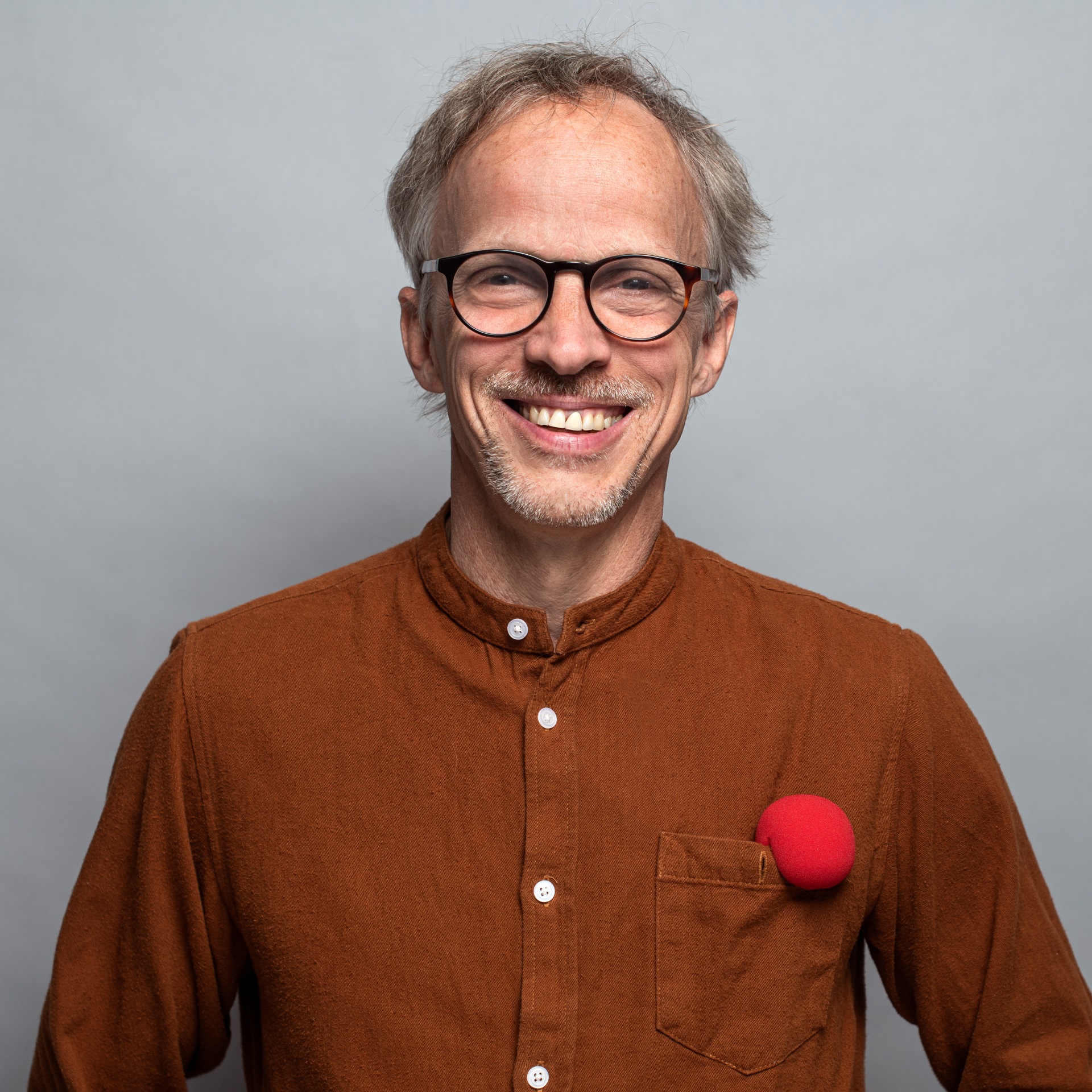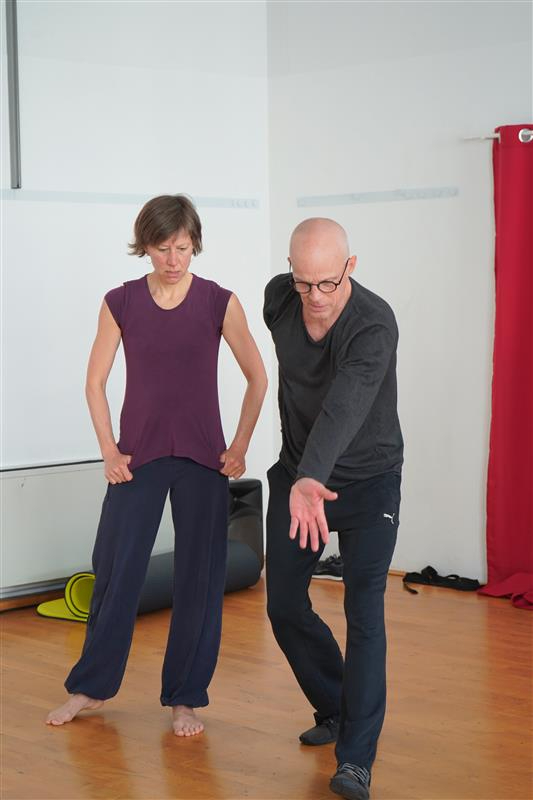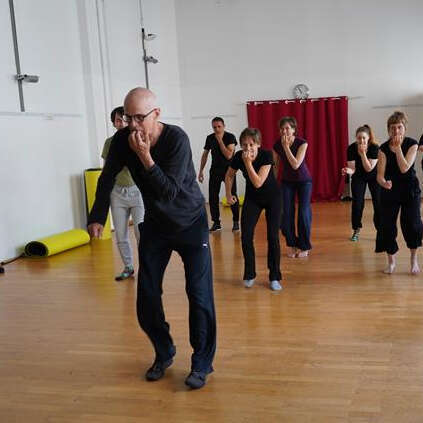Protecting the wellbeing of clown artists: An interview with Reinhard Horstkotte
On the occasion of World Mental Health Day, RED NOSES International spoke with Reinhard Horstkotte, clown, teacher, and artistic director of RED NOSES Germany. Known for his reflective and gentle approach to the art of clowning, Reinhard shares how training, awareness, and humour help our clown artists care for their own wellbeing while bringing joy and connection to others.
- What role do you think RED NOSES and its artists can play in raising awareness for mental health, not only for the audiences but also for themselves?
The central figure of our organization is the clown! With love and empathy, clowns hold up a mirror to us, helping us laugh at ourselves. And what could be better for our mental health than the ability to laugh at ourselves and not take life too seriously?
 Enlarge photo
Enlarge photo- Clowning always requires openness and vulnerability. How does your workshop support artists in staying emotionally available for others?
By creating a space of deep acceptance and trust. We are together and fine the way we are. And in the same time we respect the space we are given: We arrive in time. We listen to the others with care. We stay aware of our body and our breath, we share laughter and tears.
- From your perspective, what are some of the specific challenges clown artists face in maintaining mental resilience, and how does your approach address them?
To make them aware of the difficult environments they work in. Very often when we arrive in hospitals or care homes, the atmosphere can be quite heavy. It’s good to see that. It’s important to notice that. It’s good to stop, to look inside and outside, and then go into action. Sometimes we overact — we need to stay aware of that.
 Enlarge photo
Enlarge photoWorkshop with Reinhard Horstkotte on finding artistic resilience in difficult situations
- How has your own philosophy of clowning evolved through your work with RED NOSES? To which extend have the needs of clown artists influenced your workshops?
RED NOSES takes the art of clowning very seriously. We continuously ask ourselves: What is the clown? We can’t fully grasp it, but we can circle around it and catch glimpses of its magical quality. In RED NOSES, I found colleagues who think in similar ways and truly appreciate one another.
I felt there needed to be space for the stories that didn’t go well — the moments that ended in disaster. Moments when we really felt embarrassed and thought, “I am such a bad clown; I always knew it, and here’s the proof.” In the workshop, we share those stories.
- Beyond your work with RED NOSES, what do you personally do to recharge and keep balance in your own life?
Friends, family, nature, simple things — having good food, reading a book, watching a movie, going for a walk and breathe.
- How do you see the connection between artistic creativity and mental health care in your workshops?
It’s all about adequacy and proportion. Someone who is mentally healthy recognizes their emotions, understands them, and can regulate them. They know how to handle stress, crises, and other challenges. This is essential for our health, our overall wellbeing, and for building positive relationships with others — and much more.
Artistic creativity is not dependent on mental health. History is full of “insane” great artists who struggled — Van Gogh, Munch, Nijinsky. Therefore, in the fields we work in, it is crucial that artists are psychologically balanced.
 Enlarge photo
Enlarge photoWorkshop with Reinhard Horstkotte in Vienna
World Mental Health Day reminds us that caring for mental wellbeing is everyone’s right — and responsibility. As Reinhard beautifully shares, when clown artists nurture their own balance, they can bring genuine laughter and connection to those who need it most. Because behind every red nose stands a heart that listens, feels, and uplifts through humour.
